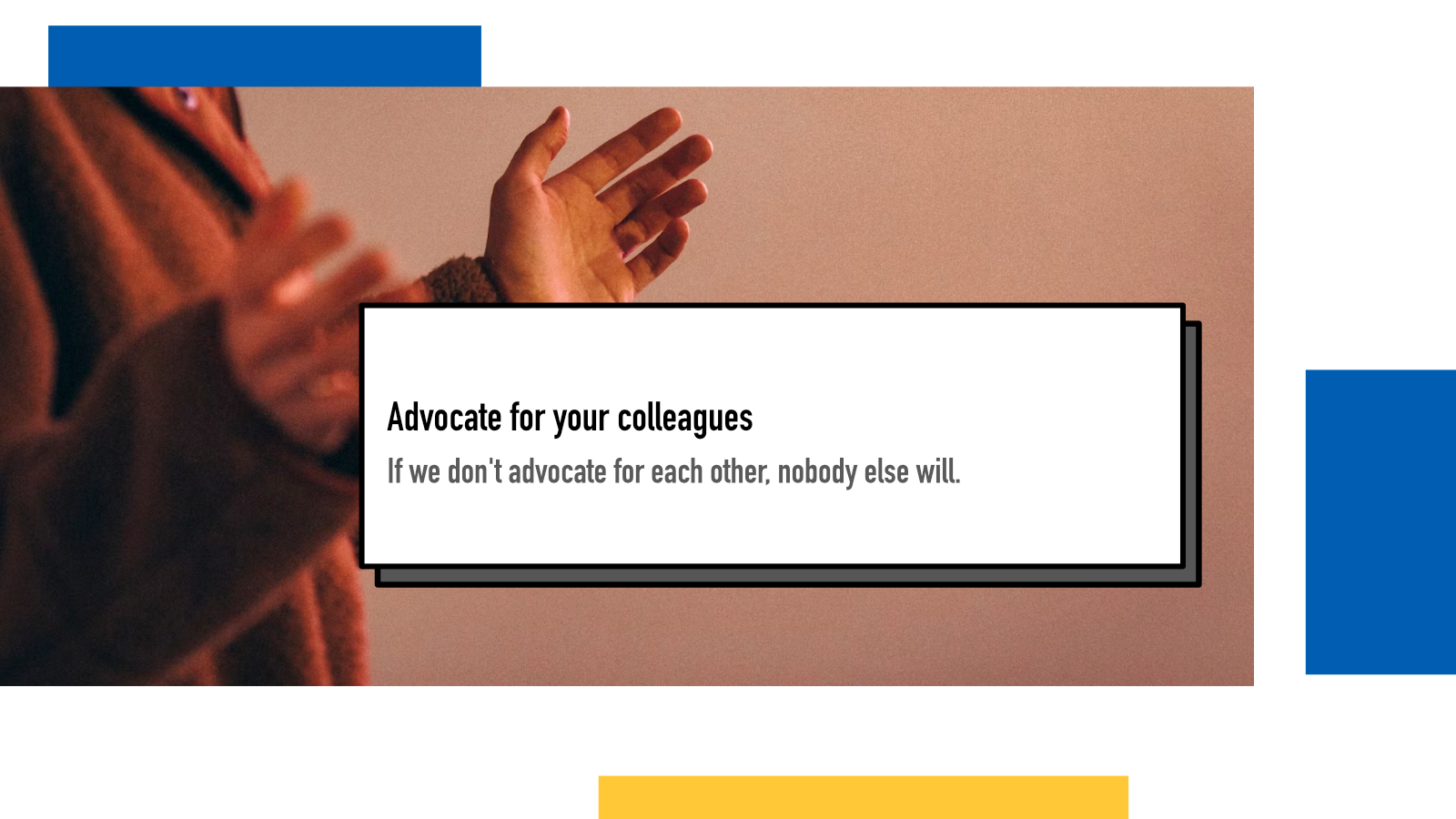Advocate for your colleagues

If I’ve learned anything in my years in the work force, it is that in many organisations, managers are not that aware of how well their team members do their work. Even the most well-meaning manager cannot be aware of everything that happens, especially when it happens when collaborating with people outside the immediate team. And these days, it’s common for people to have supervisors who are not in the same team as them (some companies separate people leadership with project/technical/domain leadership).
Julia Evans mentions this in her great brag document post
There’s this idea that, if you do great work at your job, people will (or should!) automatically recognize that work and reward you for it with promotions / increased pay. In practice, it’s often more complicated than that – some kinds of important work are more visible/memorable than others. It’s frustrating to have done something really important and later realize that you didn’t get rewarded for it just because the people making the decision didn’t understand or remember what you did.
Aashni Shah mentions this too in Hype Yourself! You're Worth It!
You may have the best manager in the world, but in reality your manager doesn’t know about all the work that you’ve done, and especially what work you are proudest of.
And Marie Chatfield Rivas has similar experiences they share in You Are Your Own Best Hype Person
At some point in your career, you’re going to have to prove to someone that you’re worth it: worth hiring, worth promoting, worth the raise, worth taking a risk on. If you’re lucky, you might have someone who has seen your work first hand, who believes in you and can vouch for you. But even if you have the most supportive and engaged manager in the world, they still won’t know everything you do and all the valuable contributions you make — unless you tell them.
Now, all these three people have great ideas and insights in their posts on how to advocate for yourself. I highly recommend reading them.
I will talk about advocating for colleagues.
Help your colleagues manager know about the great work
Once I realized how organisations work and how important advocating for yourself is, I’ve made an active effort to also advocate for people I work with.
When I was working at Futurice, we had a concept called Jolt which was a way to publicly give praise and thanks to colleagues. You could do it by finding something nice in a Jolt Station (a place where we’d store stickers, candy, pins, cards and other small tokens of appreciation) and giving it to the colleague and write your thanks on a large, never-ending roll of paper positioned on the wall next to the station. Or you might post about it on Slack with a couple of Jolt emojis and sharing with everyone in the channel your appreciation.
I loved it and used it extensively.
But it’s not guaranteed their managers will see those thanks in the sea of posts in Slack. That was not their purpose either.
So in addition to that, I started reaching out to managers directly.
As an example, when I was working at Mozilla, I worked on the communications for a new feature we were releasing. One part of that was collaborating with our support site team to create the necessary end-user facing manual pages. I had a great time collaborating with the editor and once we finished, I reached out to their manager directly and told how much I enjoyed their work and how they made the entire process smooth and effective.
It was the kind of thing that probably would not have been noticed by their manager. It was one of the many cases they worked throughout the year and the manager wasn’t involved in the details of the work. I felt it was important to let them know that this person in their team was doing work that was impressive to me in the other part of the organisation and how their work helped the company’s product become better.
I still have a lot to improve the consistency of how I do this because it’s so easy to forget in the daily grind. That’s also why it’s so important. To make sure it doesn’t disappear into the daily grind but is noticed, appreciated and made visible to their managers.
If we don’t advocate for each other, nobody will.
If something above resonated with you, let's start a discussion about it! Email me at juhamattisantala at gmail dot com and share your thoughts. This year, I want to have more deeper discussions with people from around the world and I'd love if you'd be part of that.